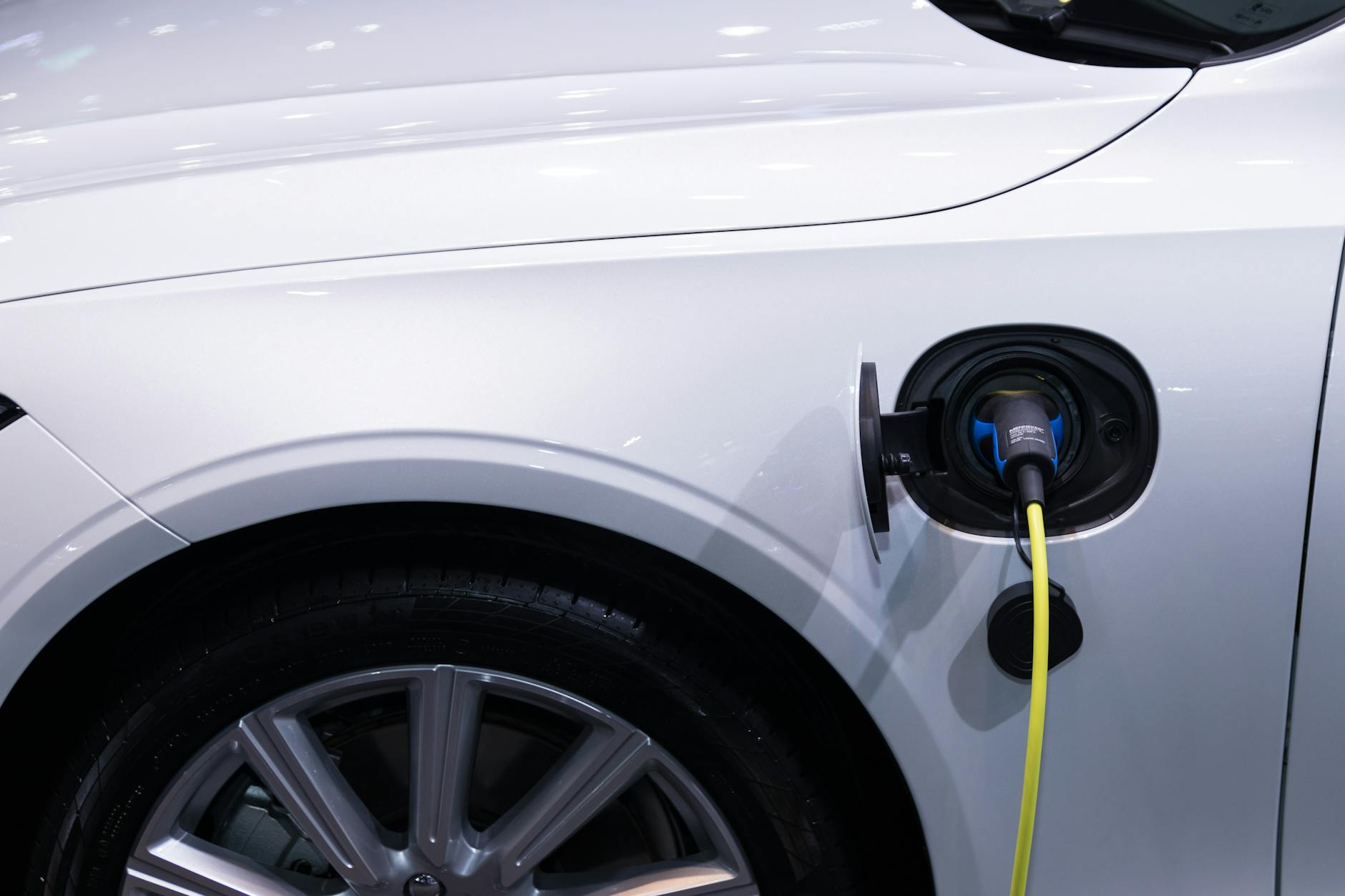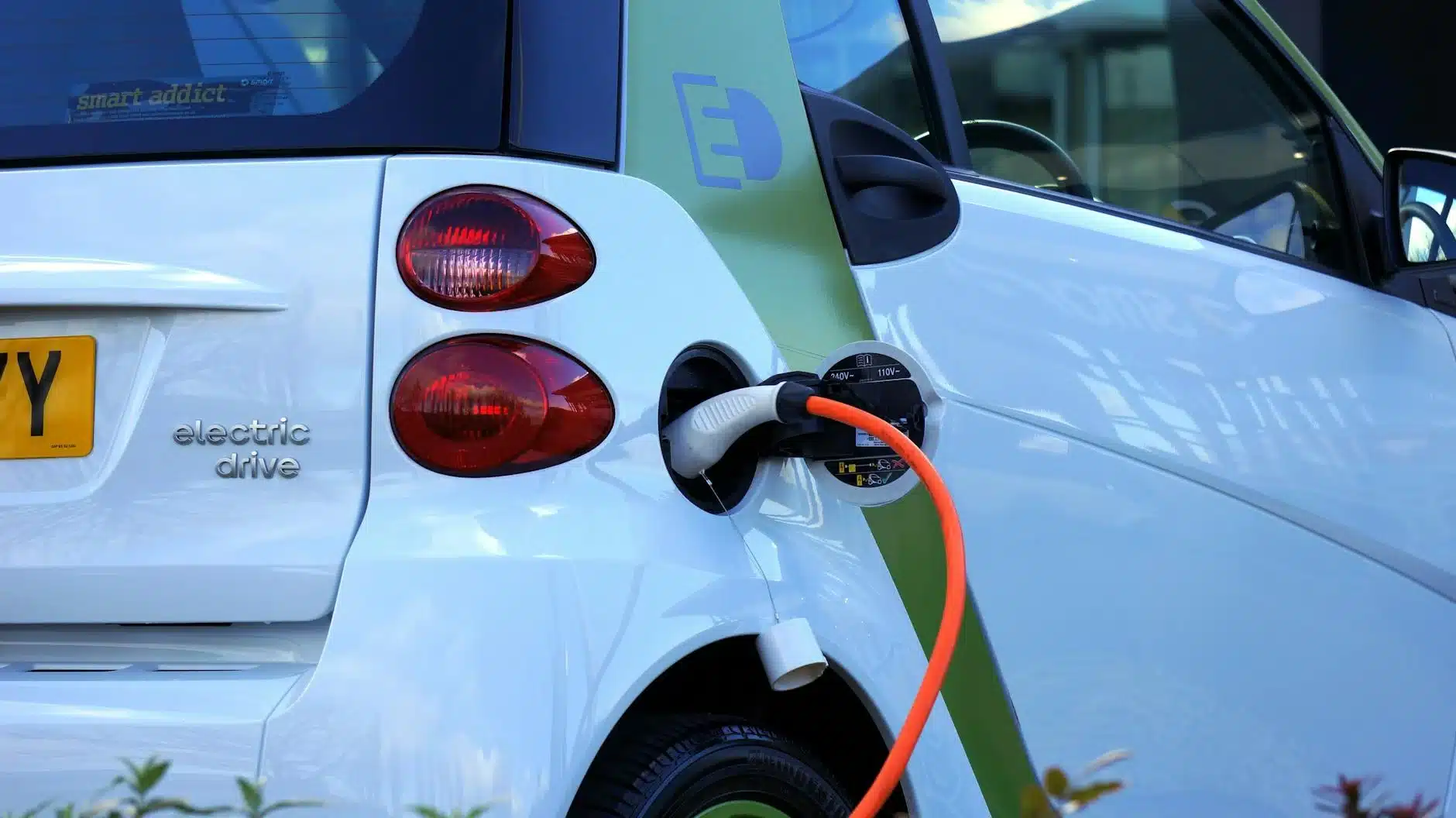Are you tired of skyrocketing fuel prices and looking for an eco-friendly alternative? 🌿 Electric cars might be the answer you’ve been searching for! But wait, aren’t they expensive? Not anymore! 🚗⚡
India’s automotive landscape is rapidly evolving, with electric vehicles (EVs) taking center stage. The good news? Affordable electric cars are now a reality in the Indian market. From compact city runabouts to feature-packed SUVs, there’s an electric option for every budget-conscious driver. But which ones offer the best value for your hard-earned money?
In this blog post, we’ll dive into the top 6 most affordable electric cars in India. We’ll explore what makes these EVs tick, compare their features, and help you find the perfect electric companion for your daily commute. So, buckle up as we take you on an electrifying journey through India’s most budget-friendly EVs!

Understanding Electric Cars in India
A. The rise of electric vehicles in the Indian market
The Indian automotive landscape is experiencing a significant shift towards electrification. Electric vehicles (EVs) are gaining traction due to their eco-friendly nature and long-term cost-effectiveness. In recent years, the market has seen a surge in EV sales, with both domestic and international manufacturers introducing a variety of models to cater to different consumer segments.
B. Government initiatives promoting electric car adoption
To accelerate the adoption of electric vehicles, the Indian government has implemented several initiatives:
- FAME II Scheme: Provides subsidies for EV purchases
- Tax incentives: Reduced GST rates on electric vehicles
- Infrastructure development: Setting up charging stations across the country
These measures have significantly boosted the EV market, making electric cars more accessible to the average Indian consumer.
C. Benefits of owning an electric car
Owning an electric car in India comes with numerous advantages:
| Benefit | Description |
|---|---|
| Lower running costs | Electricity is cheaper than petrol or diesel |
| Reduced maintenance | Fewer moving parts mean less wear and tear |
| Environmental impact | Zero tailpipe emissions, reducing air pollution |
| Tax benefits | Lower registration fees and road tax in many states |
| Quieter operation | Electric motors provide a smooth, silent ride |
With these benefits in mind, it’s no wonder that more Indians are considering electric cars as a viable option for their next vehicle purchase. As we explore the most affordable electric cars in India, you’ll see how these advantages translate into real-world value for consumers.

Factors Influencing Affordability
When considering the affordability of electric cars in India, several key factors come into play. Understanding these elements can help potential buyers make informed decisions about their EV purchases.
A. Battery life and replacement costs
The battery is the heart of an electric vehicle, and its lifespan significantly impacts the overall cost of ownership. Most EV batteries last between 8-10 years, but their performance may degrade over time. Replacement costs can be substantial, often ranging from 30-50% of the car’s original price. However, as technology advances, these costs are expected to decrease.
B. Charging infrastructure
The availability and accessibility of charging stations play a crucial role in the affordability of EVs. While home charging is convenient, public charging infrastructure is essential for long-distance travel. The Indian government and private companies are investing heavily in expanding the charging network, which will make EV ownership more practical and cost-effective in the long run.
C. Maintenance costs
One of the advantages of electric cars is their lower maintenance costs compared to traditional internal combustion engine vehicles. EVs have fewer moving parts, which means less wear and tear and fewer service requirements. This can lead to significant savings over the life of the vehicle.
D. Purchase price
The initial purchase price is often the most significant factor in determining affordability. While electric cars typically have higher upfront costs than their petrol or diesel counterparts, government incentives and lower running costs can offset this difference over time.
Here’s a comparison of factors influencing affordability for electric cars in India:
| Factor | Impact on Affordability | Long-term Trend |
|---|---|---|
| Battery costs | High initial impact | Decreasing |
| Charging infrastructure | Moderate impact | Improving |
| Maintenance costs | Positive impact (lower costs) | Stable |
| Purchase price | High initial impact | Gradually decreasing |
Understanding these factors is crucial when evaluating the affordability of electric cars in India. With this knowledge, let’s explore some of the most affordable electric car options available in the Indian market.

Tata Tigor EV
A. Driving range and performance
The Tata Tigor EV boasts an impressive driving range of up to 306 km on a single charge, making it an excellent choice for urban commuters and those looking for a reliable electric vehicle for daily use. Its 26 kWh lithium-ion battery pack powers a permanent magnet synchronous motor, delivering a peak power output of 74 bhp and a maximum torque of 170 Nm. This combination ensures smooth acceleration and a comfortable driving experience.
B. Price range
The Tata Tigor EV is one of the most affordable electric cars in India, with prices starting from:
| Variant | Ex-showroom Price (Delhi) |
|---|---|
| XE | ₹12.49 Lakh |
| XM | ₹12.99 Lakh |
| XZ+ | ₹13.49 Lakh |
These competitive prices make the Tigor EV an attractive option for budget-conscious consumers looking to transition to electric mobility.
C. Key features and specifications
The Tata Tigor EV comes packed with several notable features and specifications:
- Fast charging capability: 0-80% in about 60 minutes
- Regenerative braking system
- Multiple drive modes: Drive, Sport, and Eco
- 7-inch touchscreen infotainment system with Apple CarPlay and Android Auto
- Automatic climate control
- Hill-start assist
- Electronic stability program
- Dual airbags and ABS with EBD
With its impressive range, affordable price, and robust feature set, the Tata Tigor EV stands out as a compelling option in the Indian electric car market. Now, let’s explore another popular electric vehicle in the affordable segment, the Mahindra e2o Plus.

Mahindra e2o Plus
The Mahindra e2o Plus is a popular choice among budget-conscious electric car buyers in India. This compact electric vehicle offers a blend of affordability, practicality, and eco-friendliness, making it an attractive option for urban commuters.
Safety Features
Despite its compact size, the Mahindra e2o Plus doesn’t compromise on safety. It comes equipped with several features to ensure passenger protection:
- Reinforced body structure
- Anti-lock Braking System (ABS)
- Driver and passenger airbags
- Rear parking sensors
- Hill-hold assist
Cost-effective Pricing
One of the main selling points of the Mahindra e2o Plus is its affordable price tag. Here’s a breakdown of its cost-effectiveness:
| Aspect | Details |
|---|---|
| Starting Price | ₹7.57 lakh (ex-showroom) |
| Running Cost | Approximately ₹0.70 per kilometer |
| Maintenance | Lower than conventional vehicles |
| Government Incentives | Eligible for various EV subsidies |
Compact Design for Urban Commuting
The e2o Plus is tailor-made for navigating busy city streets:
- Small turning radius of 4.35 meters
- Length of 3,590 mm for easy parking
- Seating capacity of four adults
- Boot space of 135 liters
With its nimble handling and compact dimensions, the Mahindra e2o Plus proves to be an ideal choice for those seeking an affordable electric car for daily urban commutes. Its combination of safety features, cost-effectiveness, and city-friendly design makes it a strong contender in the Indian electric vehicle market.
Next, we’ll explore another popular affordable electric car option in India – the Tata Nexon EV, which offers a different set of features and capabilities compared to the e2o Plus.

Tata Nexon EV
SUV styling at an accessible price point
The Tata Nexon EV brings the popular SUV styling to the electric vehicle market at a surprisingly affordable price. With its bold design and commanding presence, this compact SUV offers a perfect blend of style and practicality. The Nexon EV’s starting price of around ₹14 lakhs makes it one of the most accessible electric SUVs in India.
Comfort and convenience features
Tata has equipped the Nexon EV with a host of comfort and convenience features that elevate the driving experience:
- 7-inch touchscreen infotainment system
- Automatic climate control
- Multi-mode regenerative braking
- Leather-wrapped steering wheel
- Rear AC vents
- Keyless entry and push-button start
These features ensure that drivers and passengers enjoy a comfortable and connected journey, whether for daily commutes or weekend getaways.
Advanced battery technology
The Nexon EV’s heart lies in its advanced battery technology:
| Specification | Detail |
|---|---|
| Battery Type | Lithium-ion |
| Capacity | 30.2 kWh |
| Range | Up to 312 km (ARAI certified) |
| Charging Time | 0-80% in 60 minutes (DC fast charging) |
This cutting-edge battery system not only provides an impressive range but also supports fast charging, making the Nexon EV a practical choice for urban dwellers and long-distance travelers alike.
With its combination of SUV styling, comfortable features, and advanced battery technology, the Tata Nexon EV stands out as a compelling option in the affordable electric car segment in India. As we explore our next contender, we’ll see how it compares to the Nexon EV’s impressive offerings.

MG ZS EV
The MG ZS EV is a compelling option in the affordable electric car segment in India, offering a blend of smart features, impressive range, and premium amenities at a competitive price point.
A. Smart connectivity options
The MG ZS EV comes equipped with an array of smart connectivity features that enhance the driving experience:
- i-SMART EV 2.0 connected car technology
- 8-inch touchscreen infotainment system
- Apple CarPlay and Android Auto compatibility
- Over-the-air (OTA) updates for continuous improvement
These features not only provide convenience but also keep the vehicle up-to-date with the latest software enhancements.
B. Long-range capabilities
One of the standout features of the MG ZS EV is its impressive range, addressing a common concern among potential electric vehicle buyers:
| Specification | Value |
|---|---|
| Battery Capacity | 44.5 kWh |
| ARAI Certified Range | Up to 419 km |
| Real-world Range | 300-340 km |
This long-range capability makes the MG ZS EV suitable for both city driving and occasional highway trips, reducing range anxiety for owners.
C. Premium features at a competitive price
Despite its affordable price tag, the MG ZS EV doesn’t skimp on premium features:
- Panoramic sunroof
- Leather-wrapped steering wheel
- PM 2.5 air filter
- Heated ORVMs
- Six-way power-adjustable driver seat
These high-end features, typically found in more expensive vehicles, add significant value to the MG ZS EV package.
The combination of smart connectivity, long-range capabilities, and premium features at a competitive price point makes the MG ZS EV a strong contender in the affordable electric car market in India. As we move forward, let’s compare how these features stack up against other affordable electric cars in the Indian market.

Hyundai Kona Electric
The Hyundai Kona Electric stands out as a premium offering in the affordable electric car segment in India. This versatile EV combines luxury, performance, and global appeal with a price point tailored for the Indian market.
Luxurious Interiors
The Kona Electric boasts a cabin that rivals many premium sedans:
- Leather-wrapped steering wheel and gear knob
- Ventilated front seats
- 7-inch digital instrument cluster
- 8-inch touchscreen infotainment system
These features create a comfortable and tech-savvy environment for both driver and passengers.
High-Performance Electric Motor
Kona’s electric powertrain delivers impressive performance:
| Specification | Value |
|---|---|
| Power Output | 136 PS |
| Torque | 395 Nm |
| Range | 452 km (ARAI certified) |
| Charging Time | 57 minutes (10-80% with DC fast charging) |
This combination of power and range makes the Kona Electric suitable for both city commutes and long-distance travel.
Global Design with Indian Pricing
Hyundai has successfully adapted its global EV for the Indian market:
- Distinctive SUV styling with aerodynamic elements
- Available in vibrant color options
- Priced competitively for its segment
- Localized production to reduce costs
While the Kona Electric sits at the higher end of the affordable EV spectrum in India, it offers a compelling package of luxury, performance, and practicality. Its success demonstrates the growing appetite for premium electric vehicles in the Indian market.

Comparison of the Top 5 Affordable Electric Cars
Now that we’ve explored the individual models, let’s compare these top 5 affordable electric cars in India across key factors that matter most to potential buyers.
A. After-sales service and warranty
When it comes to after-sales service and warranty, each manufacturer offers different packages:
| Model | Warranty | Service Network |
|---|---|---|
| Tata Tigor EV | 8 years/1,60,000 km battery warranty | Extensive network across India |
| Mahindra e2o Plus | 3 years/60,000 km vehicle warranty | Limited but growing network |
| Tata Nexon EV | 8 years/1,60,000 km battery warranty | Extensive network across India |
| MG ZS EV | 5 years/unlimited km vehicle warranty | Expanding network in major cities |
| Hyundai Kona Electric | 8 years/1,60,000 km battery warranty | Wide network in urban areas |
B. Charging time and options
Charging infrastructure is crucial for EV owners. Here’s how these models compare:
- Tata Tigor EV: 0-80% in 60 minutes (DC fast charging)
- Mahindra e2o Plus: 0-80% in 90 minutes (DC fast charging)
- Tata Nexon EV: 0-80% in 60 minutes (DC fast charging)
- MG ZS EV: 0-80% in 50 minutes (DC fast charging)
- Hyundai Kona Electric: 0-80% in 57 minutes (DC fast charging)
All models support home charging with a standard AC charger, typically taking 6-8 hours for a full charge.
C. Range and performance metrics
Range anxiety is a common concern for EV buyers. Let’s compare the range and performance:
| Model | Range (ARAI certified) | Top Speed | 0-100 km/h |
|---|---|---|---|
| Tata Tigor EV | 306 km | 120 km/h | 9.5 seconds |
| Mahindra e2o Plus | 140 km | 85 km/h | 14 seconds |
| Tata Nexon EV | 312 km | 120 km/h | 9.9 seconds |
| MG ZS EV | 419 km | 140 km/h | 8.5 seconds |
| Hyundai Kona Electric | 452 km | 167 km/h | 9.7 seconds |
D. Price breakdown
Finally, let’s look at the pricing of these affordable electric cars:
- Tata Tigor EV: Starting from ₹12.49 lakh
- Mahindra e2o Plus: Starting from ₹7.57 lakh (discontinued but available in used car market)
- Tata Nexon EV: Starting from ₹14.99 lakh
- MG ZS EV: Starting from ₹21.99 lakh
- Hyundai Kona Electric: Starting from ₹23.79 lakh
(All prices are ex-showroom, Delhi)
These comparisons highlight the strengths of each model across crucial factors. Next, we’ll explore some key takeaways to help you make an informed decision when choosing an affordable electric car in India.

Electric cars are revolutionizing the automotive landscape in India, offering eco-friendly and cost-effective alternatives to traditional vehicles. From the compact Tata Tigor EV to the versatile MG ZS EV, there are now several affordable options for Indian consumers looking to make the switch to electric. These vehicles not only reduce environmental impact but also provide long-term savings on fuel and maintenance costs.
As the electric vehicle market continues to grow, it’s crucial for potential buyers to consider factors such as range, charging infrastructure, and government incentives when making their decision. By exploring the top affordable electric cars highlighted in this blog, you can find the perfect balance between performance, features, and budget to suit your needs. Embrace the future of transportation and join the electric revolution today!





